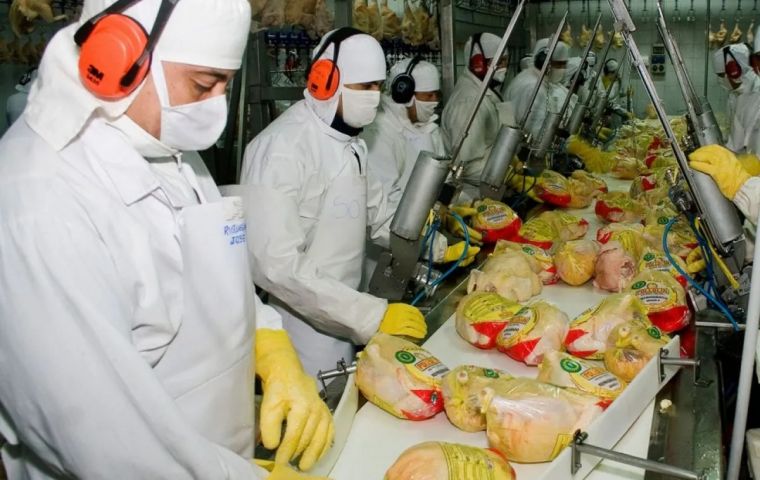MercoPress. South Atlantic News Agency
Japan reopens door to Argentine poultry products
 The poultry meat and eggs exported to Japan must have been produced after Dec. 5, 2023.
The poultry meat and eggs exported to Japan must have been produced after Dec. 5, 2023. Japan's Ministry of Agriculture, Forestry and Fisheries lifted all restrictions on poultry products from Argentina in force since February this year following outbreaks of highly pathogenic avian influenza (HPAI) in the South American country, it was reported.
The new measure was adopted after receiving and evaluating information on avian influenza control from Argentine health authorities, it was explained. Japan's decision to suspend poultry imports sought to prevent the infection of poultry in Japan and was in no way connected to the safety of Argentine poultry products.
However, even before February's suspension, Japan did not allow live poultry in from Argentina in the absence of bilateral import conditions for these types of products.
The lifting of the restrictions reflects the confidence in Argentina's actions to control and eradicate avian influenza, reopening an important market for Argentine poultry exports, Japanese authorities also pointed out.
Argentina's National Service of Health and Agrifood Quality (Senasa) also pointed out that the poultry meat and eggs exported to Japan must have been produced after Dec. 5, 2023.
Thanks to sanitary actions implemented by Senasa and other national and local agencies, Argentina regained its HPAI-free status on Aug. 7, which was key to reopening foreign markets, it was reported in Buenos Aires, where local authorities also highlighted that Japan's latest decision was expected to boost confidence among other potential buyers for Argentine agri-food exports.




Top Comments
Disclaimer & comment rulesCommenting for this story is now closed.
If you have a Facebook account, become a fan and comment on our Facebook Page!